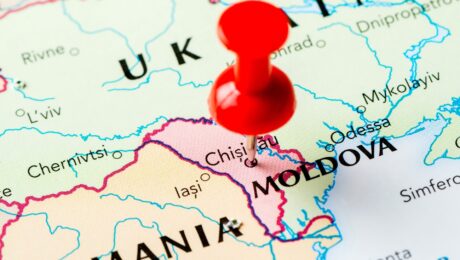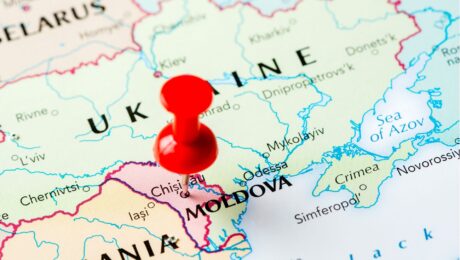Poland’s “Moldova file” is a case study in international lobbying power: and a warning for Romania
In international politics, influence is not awarded to the closest neighbour. It is captured by the actor who frames the agenda, builds repeatable instruments, and turns support into a recognised role within decision-making centres. The current Poland–Moldova dynamic shows this mechanism in real time: Poland is steadily building a visible “advocate” position for Moldova in European Union politics, while Romania, despite structural leverage and substantial practical involvement, risks being perceived as background support rather than a strategic sponsor.
On January 26, 2026, during a joint press conference, Moldova’s President Maia Sandu publicly described Poland as a credible advocate for Moldova in Europe and emphasised Poland’s strong and reliable voice in the EU. Poland’s President Karol Nawrocki reiterated a consistent message of support for Moldova’s European path and reforms. In lobbying terms, this is not a generic diplomatic exchange. It is a public role assignment: Chișinău signals who can carry the file beyond bilateral relations.
How international lobbying actually works in this context
Poland did not just “support Moldova” with statements; it built a dedicated media product for Moldova inside its public broadcasting system. TVP launched “Vot Tak. Moldova” as a Russian-language, Moldova-focused news service in August 2025, explicitly aimed at countering Russian disinformation and shaping how Moldovan politics and EU accession are understood.
On 2 February 2026, TVP escalated the play by launching a Romanian-language version for Moldovans, with its own website and social channels, and editorial messaging focused on propaganda mechanisms, the accession process, and Poland’s role in “helping democratic processes.”
This is international influence in its modern form: you do not just fund projects, you build a narrative engine targeted at a specific country, then you become its advocate by default. Romania, despite being the natural anchor for Moldova, has nothing comparable to a visible, state-backed international news service dedicated to Moldova, and that gap is exactly how Warsaw starts to look like the organiser while Bucharest looks like the neighbour who assumes the role is automatic.
Successful state lobbying is not one speech, one visit, or one headline. It is a system that converts messaging into institutionalised presence.
First, it starts with framing. Poland does not present itself as a friendly observer. It positions itself as a stable advocate for Moldova’s European path, an “issue owner” with credibility in Brussels and among security-focused capitals.
Second, it uses repeatable instruments. Poland’s official 2025 Development Cooperation Plan lists Moldova among its priority countries for development assistance. That matters because priority-country status creates predictable funding lines, program pipelines, implementing partners, and policy continuity, the infrastructure through which influence becomes durable.
Third, it ties soft power to hard domains. Energy transition language in Eastern Europe is never only climate policy; it is security policy. On November 18, 2024, Moldova and Poland signed a memorandum in Chișinău on cooperation in energy efficiency, focusing on buildings and decarbonization, explicitly linked to Moldova’s EU integration direction. This is exactly the type of cooperation that produces visibility, positive technical dependency, and policy alignment over time.
Fourth, it leverages coalition logic. Poland’s regional credibility on the eastern flank can be “exported” into Moldova’s accession and resilience narrative. That multiplies Poland’s ability to speak for Moldova in environments where influence is exercised through informal majorities and agenda control, not only formal votes.
Where Romania is vulnerable: not on substance, but on role
Romania remains structurally indispensable to Moldova in ways Poland cannot replicate. Romania’s role in connectivity and energy security is embedded in the region’s architecture, and EU-backed interconnection projects exist specifically to strengthen Moldova’s resilience and integration options.
The issue is how influence is perceived and credited in international arenas. Romania’s contribution is often treated as “natural,” almost automatic: neighbourly, historical, expected. Poland’s contribution is packaged as a strategy: programmatic, role-based, exportable. That distinction matters because EU politics rewards the actor who appears as the coordinator, sponsor, and advocate, not merely the actor who is geographically closest or culturally aligned.
Why this matters: the “advocate” role becomes leverage
Within EU decision-making ecosystems, the state, perceived as an “advocate,” can shape sequencing, conditions, and priorities. It can convene coalitions, normalise certain interpretations, and claim practical leadership over a file. If Poland continues to occupy the visible “Moldova advocate” position, Romania risks becoming essential in logistics and proximity while less central in agenda-setting, a strategic downgrade that can compound over time.
The broader lesson is uncomfortable but simple: unclaimed roles are claimed by others. Romania may be doing the work, but Poland is increasingly taking on the role.
- Published in News
Romanian PR Agency Lighthouse Represents Eurocom in Romania and Republic of Moldova
Eurocom Worldwide, the global PR network, is strengthening its representation in Central and Eastern Europe by appointing Lighthouse PR, headquartered in Bucharest and covering both the Romanian market and the Republic of Moldova.
Founded by Ana Maria and Steve Gardiner, Lighthouse PR is a strategic PR and communications agency that brings a wealth of global expertise with a team of senior communications specialists offering a background of C-level management roles in large corporations. Lighthouse PR focuses on B2B and corporate communications with a strong focus on international tech companies and sectors such as energy, finance, pharma, retail & FMCG, industrial production, real estate, and construction.
Moreover, Lighthouse PR is Romania’s exclusive member of the Crisis Communication Network Europe (CCNE), a group of specialist crisis consulting agencies dedicated to European markets. The agency obtained the ISO 27001 certification for information security after securing the ISO 9001 certification for its quality management system in 2023.
The Lighthouse PR strategy has been designed to develop strong, long-term partnerships with our clients, whom we support 24/7/365 with the best communication consultancy Romania offers and other partners with whom we share a vision based on trust, expertise and collaboration. Joining Eurocom Worldwide is essential in strengthening our position as a trusted partner for companies looking for PR consultants who deliver above and beyond expectations.
Ana Maria Gardiner, co-founder of Lighthouse PR
Eurocom Worldwide is one of the most significant independent PR and marketing communications networks focusing on key technology, industrial and commercial sectors. Founded in 2002, it comprises 31 member agencies in 54 offices covering more than 90 countries across all five continents. Eurocom Worldwide has a strong presence in Central & Eastern Europe, covering over 20 countries.
- Published in News
Romanian Voted as Moldova’s National Bank Governor
Anca Dragu, a Romanian senator, was voted on Friday, December 22, as the new Governor of Moldova’s National Bank. This is quite an accomplishment for the Romanian lobby and a step forward for the long-time goal of getting the two sister countries closer.
Anca Dragu has a solid background for this position. As an economist, she was appointed Minister of Finance in Romania between November 2015 and January 2017 during the rule of the Technocrat Government. Also, she was the first woman in Romania to become Speaker of the Senate. Also, she worked as an economist at the National Bank of Romania and an economic analyst with the European Commission and International Monetary Fund.
The interesting political game, noted in a comprehensive analysis of the context by Valahia News, is that the Moldovan Socialists voted along with PAS – Action and Solidarity, the party supporting Moldova’s President Maia Sandu, to oust the former governor from office and instate Anca Dragu.
Beyond any political meaning, this is also a step from what both governments intend to accomplish in the foreseeable future. Both sister countries were part of Great Romania, a territory that covered the Republic of Moldova, the southern part of Ukraine, and partially the northern part of Bulgaria. The two countries still yearn, more or less, to get back together as one, and there are exciting movements from both sides, such as to name, appoint or vote. officials from the sister country, precisely what happened with Anca Dragu.
In this context, one theory circulating in Romania is to have elected as president the current president of Moldova, Maia Sandu. This would be another way of getting the nation back together. And, if you have a passion for history, this is how the Union of the Romanian provinces in 1600 and the one in 1859 were accomplished – by imposing or voting the same ruler in all or at least two of them. So, it would just be history repeating itself.
Also, another theory is to have the two countries back together after Moldova joins the European Union, a process which might take at least 5-10 years to finish. Also, this possibility requires another step: for this political decision to be backed by all or the majority of the European member states. However, this hasn’t happened so far, so it would be the first time two European Union states would do this.
However, we also have to say that there isn’t 100% backing of the Union between the two sister countries, not even within their borders. Only half the Moldovan population would vote for a Union, while in Romania, the percentage is more significant.
Either way, this process seems to have its agenda, and the Romanian and Moldovan politicians follow it. In the long run, Moldova would be a more experienced country at the moment it will join the EU. Moldova could learn much from Romania’s expertise in the field and would be able to play its cards better when the moment comes. Also, a larger country, with 23 million inhabitants, would do better than one with 3 million in a European Union where the economic and voting power matters the most.
- Published in News




